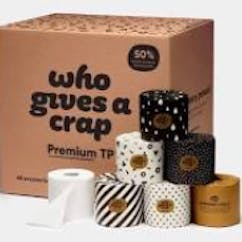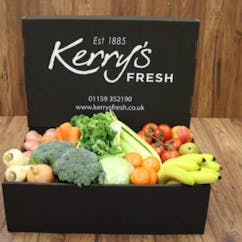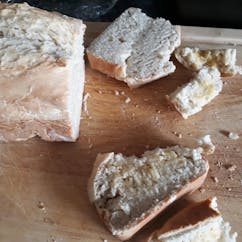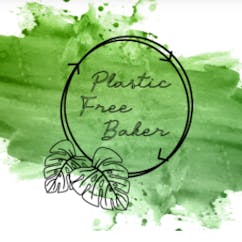
A Journey to Sustainability: Reducing Plastic
As Plastic Free July draws to a close once again, Sue Buckby describes her family's exploration into a more sustainable family life, particularly tackling single use plastics
Back in the autumn on 2019, I was becoming more burdened with looking after our planet better, and pondering on the changes that our household could make. I'd been inspired and overwhelmed, in equal measure, by one Instagrammer whose entire annual waste equated to a handheld jar. I knew that was never going to be our reality, but rather than say 'if I can't do it 100% then I might as well not bother', I set about seeing what small changes were realistic for us.
Some of the eco changes we have made over the past couple of years have had a (significant) financial outlay. And, for some of those, it will be decades before we 'save' on the long term cost of not buying single use items. But, as a family, we have looked at what we can afford, and what we want our family values to be, and decided on where we want to make investments for our health and our planet. This article will focus specifically on swapping out single use plastics, but there is another on the way for more holistic changes that can have a small impact on us but a big impact on our world (assuming that everyone else makes these changes too- we certainly need to be in this together). I read something like 'we don't need a few people doing it perfectly, but a multitude doing it imperfectly'*.
I'll be upfront and say that, of the things we have tried, we haven't stuck with them all, and some we have unintentionally let slide. But, as climate change repeatedly slams back into the forefront of my consciousness, I am renewing my efforts. I'd love to hear of changes that you have made, and inspire others with your stories.
Sue :)

1. Toilet Rolls
One of the first changes we made was to switch from supermarket toilet roll, which comes wrapped in lots of single use plastic, to ordering a job lot 2 or 3 times a year. We order from Who Gives a Crap (but there are other options), who reinvest 50% of their profits for building toilets and improving sanitation for people in low income countries. The toilet roll is made from bamboo- a fast growing and sustainable option- and comes packaged in recyclable paper and cardboard. The upfront cost was a bit scary but, each roll lasts much longer than previous brands, and we are definitely not out of pocket. Also, once we have finished a box of 48 (generally 5-6 months in our house) the kids get a cardboard to play with for a few days before they wreck it. Wins all round.

2. Fruit and Veg Box
The next change I made initially, was to buy loose fruit and veg at the supermarket instead of pre-packaged. There was no massive price difference on most items, it was an instant win. However, when Covid hit, loose supermarket veg became a thing of the past and we switched to weekly veg box deliveries from Kerry's (again, there are other providers). I love that it comes without single use plastics, and you can return the packaging to them, or turn it into a space rocket, train, fort etc.
3. Milkman Milk
When I was a child, all our milk was delivered by the local dairy. My brothers and I used to fight over the cream on the top of the silver top, and there was mass outcry when mum shook the bottles up to avoid arguments. For about 18 months now, we have been ordering doorstep milk and it tastes, oh sooo good. It's pricy. We pay 70p a pint, as opposed to about 30p if you find multibuy deals. We began by just replacing a few pints of supermarket milk a week, but we have now replaced it fully. The glass bottles get recycled and, I'm hoping, the farmer gets a bigger cut. If we had to suddenly makes cutbacks to our budget, we could return to buying it in plastic from a supermarket, but we would probably look to make any other saving possible before we gave up our doorstep deliveries.
4. Bamboo Toothbrushes
This was a big one that I wanted to try as I became aware that plastic toothbrushes take about 10000 years to decompose. That's a shockingly long time. So we traipsed to our not so local eco shop and Isabel and I made the swap. My dental health definitely took a dive- having already had one tooth extracted age 33 this isn't a dive that my dental hygiene can afford- so the toothbrushes have gone into the kindling box and plastic is back on the menu. I've read testimonies of people who swear by them. Maybe I was using too much pressure, or I would get used to a different type of brush, but, for now, bamboo toothbrushes got the thumbs down in our house,
5. Homebaking- desserts
Essentially there are three different aspects here. Firstly, we get through an insane amount of desserts. The kids and hubby all love yoghurts or desserts that come in single use plastic pots after an evening meal. Initially I went quite gungho on this, refusing to buy desserts and adamant I would make everything from scratch (I mean, not yoghurt, but jellies, trifles, cakes etc). A year and a half on, and we're back to buying a lot of ready packaged stuff. So this is one I need to take up again. I've got a pint of cream coming with the milk at the weekend and I can make a reasonably plastic-free trifle which will do a few servings and save a few plastic pots into landfill. (I mean, we do put them into the recycling bin as per council instructions but I've read many articles that make me sceptical that anything constructive happens to these, but that they end up in the ocean or the UK shamefully pays another country to take our landfill waste.

6. Homebaking- bread
I also went on a campaign of trying to make my own bread, and keep bread flour and dried yeast in for these inspired occasions. I have previously been successful here, but not with any consistency. My last attempt ended up as a half baked, badly risen mess, and I ended up at the local shop to buy bread anyway, which was total false economy. Plus, the clingfilm I used to cover the bread as it proved would pretty much equate to the plastic bread bag- recyclable at some large supermarkets- anyway so a bit of a fail that I haven't repeated.
7. Homebaking- snacks
My children get through an insane amount of snacks. And, with the summer holidays looming, I need to up my game here and quickly. The packaging that these snacks come in is often unnecessary. I am competent at making my own muffins (and substitute some of the sugar for ground almond) rather than dishing out endless Barny Bears, but it is not something I always make the time for. If I can steer them towards fruit like bananas and apples, bought loose not packaged, and away from the berries they so love in their plastic trays, we will be onto a summer win.

8. Homebaking- cheat
If you want to indulge in some plastic free home baking, but can't be bothered to actually bake it at your home, then check out my friend Anna's goodies AKA the Plastic Free Baker. She makes/ sources all her ingredients sustainably and ethically, and often shares tips on her social media for you to follow too.
9. Toiletries
I'm clumping a few in together here. If you're still reading you're doing great!
- The whole house has happily switched to shampoo bars. We use Kinkind, but have also had some lovely local ones from farmer's markets. They tend to foam up well and do not contain micro plastics, or SLS that can take away your hair's natural oils.
- Conditioner bars: Less of a fan as I can't seem to get good coverage. So, when our current one runs out, I am reverting to Tropic Hair Feast. Pricy, but intense so it's a once a week job for me. It comes in a plastic tube, but Tropic are a double carbon neutral company with lots of other ethical and eco credentials, so I'm picking my battles on that one.
- Eco sanitary towels: Much like cloth nappies for babies, there are a plethora of reusable sanitary towels now, with handy solutions like wet bags so you don't have to be pinned to your house (although this has not been much of a problem in the last 15 months). Hefty upfront initial cost, although for longevity, comfort, and reducing landfill, they get the thumbs up from me.
10. Meat
Hmm, this is a biggie. I haven't gone vegan, although we have tried to have meat free meals more often. The meat I usually buy comes in big plastic trays from the supermarket. So. Much. Waste.
So we made more effort to buy from farmer's markets and local butchers which, although more expensive, was much tastier when we did eat meat. This is another habit that has slipped, but one I want to pick up again. My local butcher- Alan Knight in Clifton, I'm looking at you- does lovely, and local, options in minimal packaging and it is only convenience that sees me pick everything up in one go. However, with the loss of the school run looming, walking all over my locality to buy things from different places, and supporting local businesses, seems like a great way to get in some steps this summer.
So, there are ten ways we have tried to reduce our plastic usage. Our general rubbish waste has more than halved and our bin is normally less than half full for our fortnightly collection. Had we made more changes sooner, like cloth instead of disposable nappies, that would have had a greater impact.
But, the main thing is, we are doing things now. Every small action you or I take is multiplied around the globe, to try and slow the devastating impact on this beautiful world
